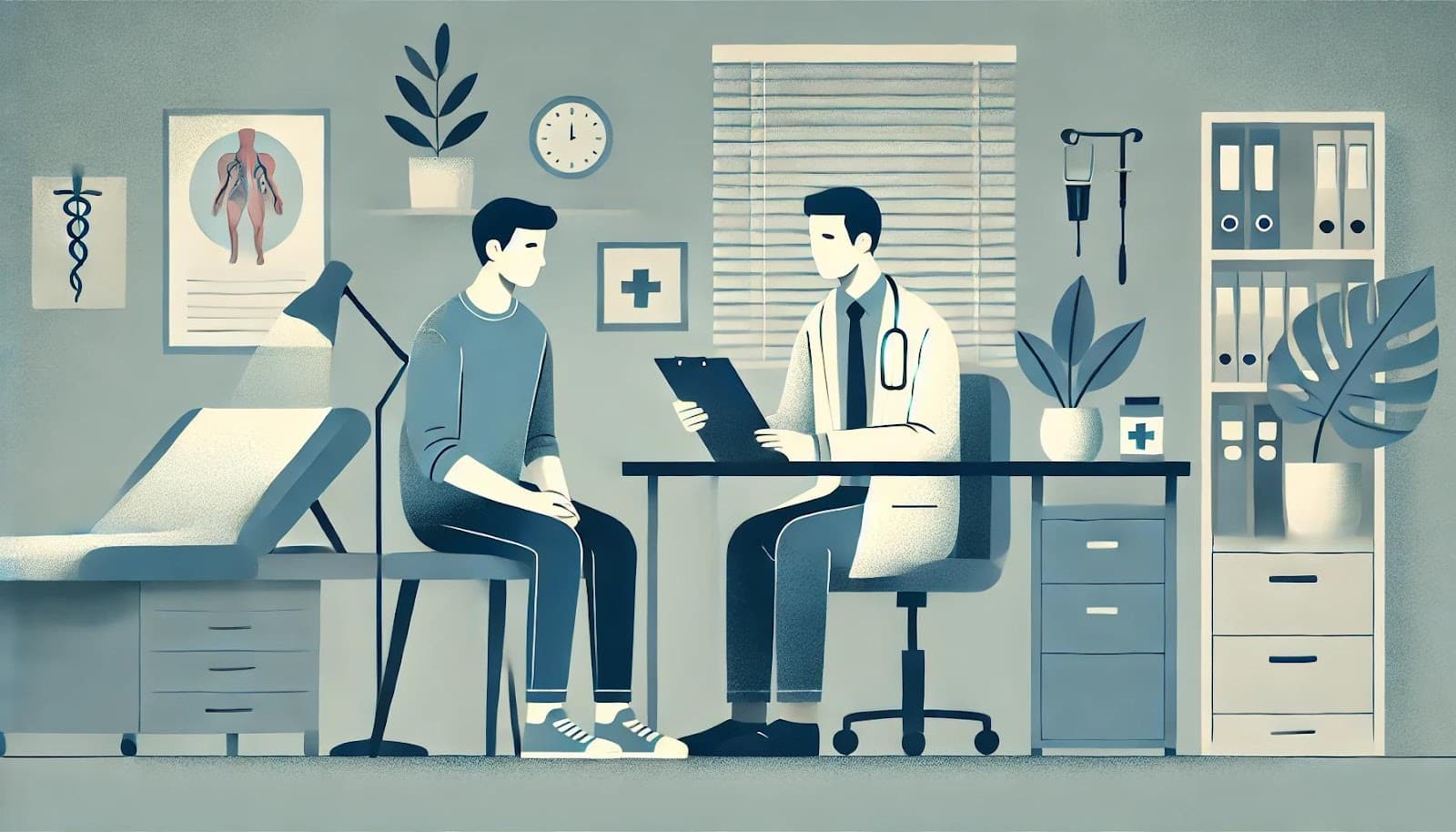Key Takeaways
- Antisocial personality disorder (ASPD) is characterized by a persistent disregard for others’ rights, often leading to manipulative, deceitful, or harmful behaviors, making it challenging for individuals to form meaningful relationships.
- While individuals with ASPD often struggle with empathy and emotional bonds, their ability to experience love can vary based on factors like the severity of the disorder, life experiences, and treatment.
- ASPD can stem from a combination of genetic predisposition, brain structure differences, childhood trauma, environmental factors, and substance abuse.
- People with ASPD often face difficulties in maintaining healthy relationships due to traits like lack of empathy, manipulative behavior, impulsivity, and aggression.
- A Mission For Michael (AMFM) provides specialized, evidence-based treatment for ASPD, offering personalized care plans and a supportive environment to help individuals improve emotional regulation, interpersonal skills, and overall mental health.
Introduction to Antisocial Personality Disorder (ASPD)
Antisocial personality disorder, or ASPD, is a complex mental health condition. It affects how individuals think and interact with others, frequently leading to behaviors that can be harmful to themselves and those around them. Unlike many other personality disorders, ASPD is marked by a consistent pattern of disregard for the rights of others. This can manifest in deceitful, manipulative, or even criminal actions.
People with ASPD may struggle with forming meaningful relationships and often find themselves in conflict with societal norms. Therefore, raising awareness about its causes, symptoms, and treatment options is an essential step in addressing this challenging disorder.
Can people with ASPD love?
The capacity for love in individuals with ASPD varies widely and depends on factors such as the severity of the disorder, life experiences, and treatment. While they may struggle with empathy and emotional bonding, some individuals with ASPD can form attachments or experience love in their own way.
Founded in 2010, A Mission For Michael (AMFM) offers specialized mental health care across California, Minnesota, and Virginia. Our accredited facilities provide residential and outpatient programs, utilizing evidence-based therapies such as CBT, DBT, and EMDR.
Our dedicated team of licensed professionals ensures every client receives the best care possible, supported by accreditation from The Joint Commission. We are committed to safety and personalized treatment plans.
Causes of ASPD

Exposure to abuse can be a cause of ASPD.
- Genetic Predisposition
There is evidence suggesting that genetics play a role in the development of ASPD. Individuals with a family history of personality disorders, particularly ASPD, may be at a higher risk of developing the condition.
- Brain Structure and Function
Differences in brain structure and function, particularly in areas related to impulse control, emotional regulation, and decision-making, have been observed in individuals with ASPD. For example, reduced activity in the prefrontal cortex, which governs judgment and self-control, is often noted.
- Childhood Trauma and Abuse
Exposure to traumatic experiences during childhood, such as physical, emotional, or sexual abuse, neglect, or unstable family environments, can contribute to the development of ASPD. These experiences may lead to maladaptive coping mechanisms and a distorted worldview.
- Environmental Factors
Growing up in environments where antisocial behavior is normalized or reinforced, such as in communities with high crime rates or dysfunctional family dynamics, can increase the likelihood of developing ASPD.
- Substance Abuse
Early and prolonged substance abuse can exacerbate antisocial tendencies and contribute to the development of ASPD, as it often leads to impaired judgment and increased impulsivity.
Influence of ASPD on Relationships
Lack of Empathy
One of the hallmark traits of ASPD is a lack of empathy, making it difficult for individuals to understand or care about the feelings and needs of others. This can lead to one-sided, exploitative, or emotionally distant relationships.
Manipulative Behavior
People with ASPD may use manipulation, deceit, or charm to achieve their goals, often at the expense of others. This can erode trust and create a toxic dynamic in relationships.
Impulsivity and Irresponsibility
Impulsive actions, such as reckless spending, substance abuse, or infidelity, can strain relationships. Additionally, a lack of responsibility or commitment may leave partners feeling unsupported or neglected.
Aggression and Hostility
Individuals with ASPD may exhibit aggressive or hostile behavior, which can lead to conflict, emotional abuse, or even physical violence in relationships.
Difficulty Maintaining Long-Term Bonds
Due to their inability to form deep emotional connections and their tendency to prioritize self-interest, those with ASPD often struggle to sustain long-term relationships. Partners may feel used, unimportant, or emotionally drained.
Impact on Family Dynamics
In familial relationships, ASPD can create instability and dysfunction. Parents with ASPD may struggle to provide a nurturing environment, while children of individuals with ASPD may experience neglect or emotional trauma.
Diagnosis of Antisocial Personality Disorder

Accurate diagnosis is key to treating Antisocial Personality Disorder effectively.
Treatment Options for ASPD
Therapeutic Interventions
Cognitive Behavioral Therapy (CBT) focuses on helping individuals recognize and change distorted thinking patterns and develop healthier coping mechanisms. CBT can also address specific behaviors, such as impulsivity or aggression, by teaching problem-solving skills and emotional regulation techniques.
In some cases, group therapy can be beneficial, providing a structured environment where individuals can practice social skills and receive feedback from peers.
Medications
There are no medications specifically approved for treating ASPD. However, certain medications can be used to manage symptoms or co-occurring conditions, such as depression or anxiety. For example, mood stabilizers or antipsychotic medications might help reduce impulsivity or aggression.
Support Systems
Educating loved ones about the disorder can help them understand the individual’s behavior and develop effective strategies for support.
Family therapy might also be beneficial, providing a space for open communication and helping family members establish healthy boundaries. Support groups for families can offer additional resources and a sense of community.
Why Choose A Mission for Michael to Treat Antisocial Personality Disorder (ASPD)?

A Mission for Michael offers specialized treatment for Antisocial Personality Disorder.
At A Mission for Michael, we provide complete care for people with ASPD. Our mental health professionals combine evidence-based therapies with holistic methods to address the complex needs of individuals affected by ASPD.
We are dedicated to fostering an environment that promotes long-term recovery, focusing on improving interpersonal skills, enhancing emotional regulation, and reducing behaviors associated with ASPD. Our special programs are designed to help people improve their mental health and quality of life.
Frequently Asked Questions (FAQ)
What is Antisocial Personality Disorder (ASPD)?
ASPD is a mental health condition characterized by a long-term pattern of disregard for the rights and feelings of others. Individuals with ASPD often exhibit behaviors such as deceitfulness, impulsivity, aggression, and a lack of empathy.
What causes Antisocial Personality Disorder?
The causes of ASPD are complex and typically involve a combination of genetic, environmental, and psychological factors.
How does ASPD affect relationships?
ASPD can significantly impact relationships due to traits like a lack of empathy, manipulative behavior, impulsivity, and aggression. Individuals with ASPD may struggle to form deep emotional connections, prioritize self-interest, and engage in behaviors that erode trust and create instability in relationships.
Can Antisocial Personality Disorder be treated?
While there is no cure for ASPD, treatment options such as CBT, group therapy, and medications for co-occurring conditions like depression or anxiety can help manage symptoms.
How can A Mission For Michael (AMFM) help individuals with ASPD?
At A Mission for Michael, we specialize in providing comprehensive mental health care for individuals with ASPD. Our accredited facilities offer evidence-based therapies, such as CBT, DBT, and EMDR, combined with holistic approaches to address the unique needs of those with ASPD. Our multidisciplinary team is dedicated to creating personalized treatment plans that focus on improving emotional regulation, interpersonal skills, and overall quality of life.













